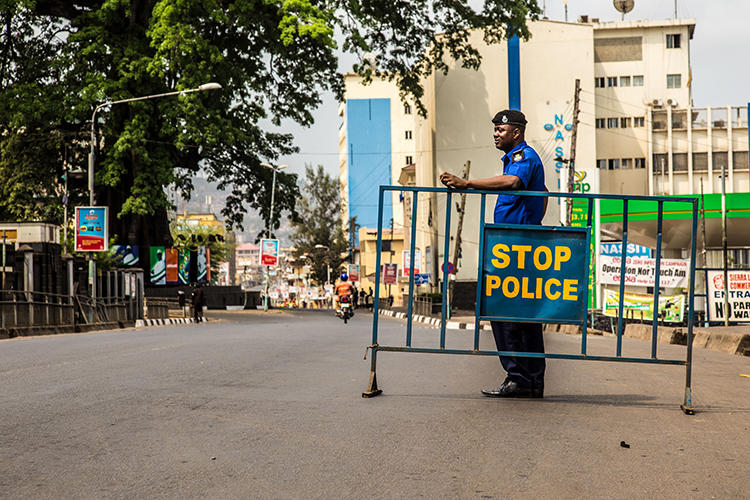Abuja, January 10, 2020 — Authorities in Sierra Leone should investigate recent attacks against journalists covering local politics, and should ensure that reporters can do their jobs safely, the Committee to Protect Journalists said today.
On January 4, a group of men slapped and hit Foday Conteh, a reporter with the privately owned Calabash newspaper, after he arrived at the home of Musa Bamba Fodey Jalloh, a minister of parliament, to interview the politician, Conteh told CPJ in a phone interview.
The attack took place at Jalloh’s home in Sierra Leone’s northern Bendugu village, and Conteh said he was afraid and confused but did not sustain serious injuries.
The week before, on December 24, 2019, several Jalloh supporters harassed and threatened two other reporters, Abdul Jalloh, with the privately owned broadcaster Hamzas Radio, and Ibrahim Mansaray, with the government-owned Sierra Leone Broadcasting Corporation, according to a report by Calabash and both journalists, who spoke to CPJ via phone and messaging app.
The attackers slapped Abdul Jalloh and poured alcohol over his head, and threatened to kill both reporters, the journalists told CPJ.
“Authorities in Sierra Leone should conduct swift and credible investigations into the violent attacks and death threats made against journalists covering Musa Bamba Fodey Jalloh,” said CPJ’s Africa program coordinator, Angela Quintal, from New York. “Covering local politics should not be a dangerous beat, and authorities must ensure that reporters can do their jobs without fear.”
Conteh told CPJ that he had been invited to Jalloh’s home to interview the politician about the previous week’s attacks against Mansaray and Abdul Jalloh, and had just arrived at the politician’s residence when a group of young men accused him of impersonating a reporter, even after he showed them a copy of his press card saved to his phone.
The men beat Conteh and then turned him over to police custody, where he was held for 17 hours on allegations of impersonating a journalist, Conteh said. Jalloh was present during the attack and did not intervene, Conteh said.
A police officer told Conteh that Jalloh had ordered his detention, the journalist said. Conteh told CPJ he was released on bail with the requirement to return to the police station on January 8.
He said he ultimately did not return to the police station on that date because a representative from the Sierra Leone Association of Journalists, a local media union, said he did not have to.
Abdul Jalloh told CPJ that he was covering a local community meeting as part of an investigation into allegations that Jalloh had neglected members of the Sambaia Chiefdom, when the politician’s supporters accused he, Mansaray, and others present of smearing the politician’s image. The supporters threatened to kill Abdul Jalloh and slapped him in the face, and he told CPJ that the slaps hurt but that he was not seriously injured.
Mansaray told CPJ he could have been assaulted but he convinced the attackers that harming a state media journalist would damage the Jalloh’s image as a politician. The attackers warned him not to film the events if he wanted to make it out alive, Mansaray said.
When Abdul Jalloh and Mansaray tried to leave the area via motorbike taxis, the politician’s supporters followed them and threatened multiple drivers not to take the journalists, but one eventually agreed to take them, Mansaray told CPJ.
When contacted over the phone by CPJ on January 10, Brima Kamara, a spokesperson for the Sierra Leone police, said he was not aware of the attacks and threats.
CPJ called Jalloh for comment. He said he knew nothing about the attacks against Abdul Jalloh and Mansaray until after they had occurred, and denied having sent supporters to the community meeting. Jalloh said that Conteh was arrested for failing to present a hard copy of his press credentials, and he denied allegations that Conteh had been beaten.
Jalloh, a parliamentarian with the ruling Sierra Leone People’s Party, is also known as Musa Bendugu, according to the reporters who spoke with CPJ.
Political reporting was the most dangerous beat in 2019, according to CPJ research on journalists killed in connection with their work.
